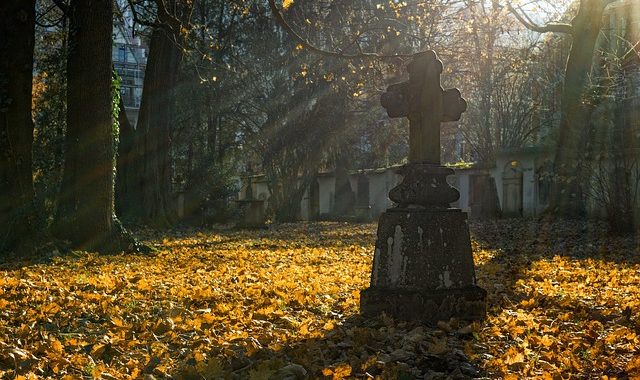
We Live in a Death Denying Culture. That’s a Problem.
Most of us hear of hospice only at the very last stages of a loved one’s life. It is not until someone is literally knocking at heaven’s door that many even consider hospice. And yet, hospice services and palliative care are available as early as a terminal diagnosis is given. The allowed stay in hospice care is generally six months. So why do so many wait until the last possible minute to accept hospice’s services of relief and respite? It is because we live in a death denying culture.
We live in a death denying culture.
The truth is, we live in a death denying culture. None of us are truly prepared to accept the inevitable until the proverbial writing is on the wall. We spend our lives distancing ourselves from death. Yet to die is a natural part of the human condition.
Think for a moment about the rituals we practice each day. We wear our seat belts, we watch what we eat, we exercise. These are all small reminders of what we are trying to hide behind the veil: that death is inevitable.
Our language is rife with death-denying idioms, such as “six feet under” or “he/she passed away.” These idiomatic expressions explicitly avoid making direct reference to death. Through language, we can clearly see that our death denying culture runs deep.
Our death denying culture is a problem.
This is a problem. It is a problem because it causes us to avoid the subject of death. We even avoid the subject in face of a terminal diagnosis. Some might say that hope is a good thing, and to hope for a miracle is only natural. But this line of thinking is actually harmful. Those who face terminal illness will undoubtedly face pain and suffering as well. With their hope intact, perhaps fueled by their next of kin, they may not ask for the relief from their suffering offered by hospice.
Hospice is the true blessing. It aids those who face death and offers relief from pain, respite from suffering, and it helps the families and loved ones of the dying with their grief. To refuse this service is to refuse relief. And yet, it is refused every day. It is refused because our death denying culture tells us to ignore death, that it is an unwelcome an far-off thing.
This is a problem that needs to be fixed. What will it take? For now, and for most people, it will take a great deal of introspection. One must look within to make the choices that are right for ourselves and our families.
The solution is simple. We need to talk about death.
For the future, there needs to be a national dialogue about death. It needs to be a topic brought to the forefront of our common consciousness. The stigma of hospice, and the stigma of terminal illness need to be expunged from our collective desire to ignore the one fact in life that is absolutely unshakeable. Perhaps then, when we can all agree that death is a natural part of our lives, will the stigma be lifted.
Hospice is about life. It is about living to the fullest of our abilities until the end in spite of a life-limiting illness. Don’t wait too long. If hospice is right for you or your loved one, accept hospice and palliative care. You will not regret it.





